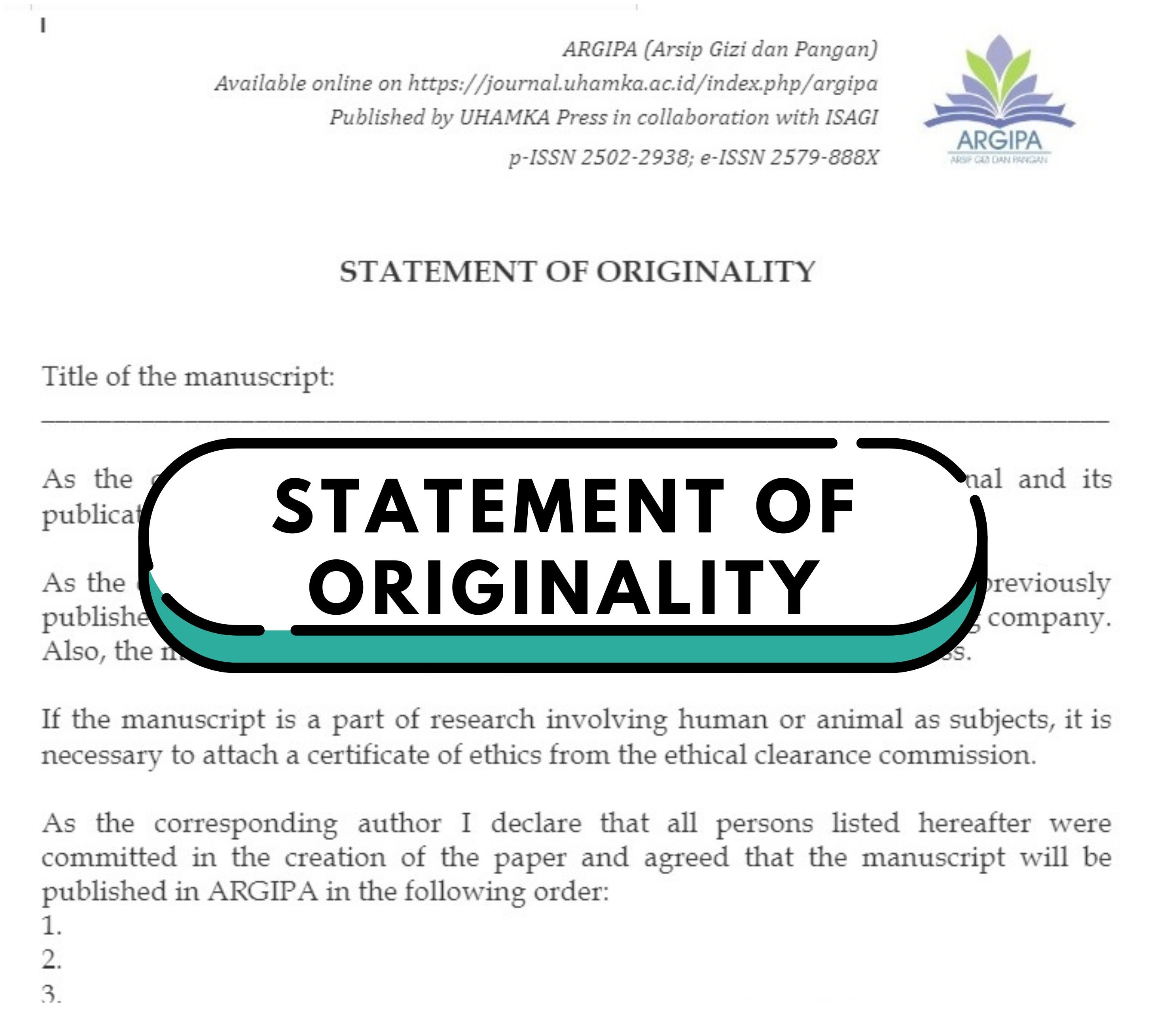The association between diet satisfaction and hospital length of stay in ischemic stroke patients at national brain centre hospital Prof. Dr. dr. Mahar Mardjono Jakarta
DOI:
https://doi.org/10.22236/argipa.v7i2.10475Keywords:
food waste, hospital length of stay, ischemic strokeAbstract
Ischaemic stroke patients tend to be malnourished. Diet satisfaction based on food waste can be used to evaluate food intake in hospitalized patients. A previous study found that there was a correlation between food waste and hospital length of stay. The aim of the study was to explore the association between diet satisfaction and hospital length of stay in ischaemic stroke patients at National Brain Centre Hospital Prof.Dr.dr Mahar Mardjono Jakarta. Design of the study was cohort retrospective. The study recruited 103 ischaemic stroke patients aged from 18 to 59 years old. Data was analysed by using chi-square test. The percentage of ischaemic stroke patients who had prolonged length-of-stay or >5 days was 34%. The proportion of low food waste was higher in patients who stayed at hospital ≤5 days (70%) than >5 days (30%). It may conclude that most patients with a short-hospitalized length of stay had low food waste. High food waste was a risk factor for hospital length of stay (RR=1.59, CI: 0.927-2.742), but the correlation between diet satisfaction based on food waste and hospital length of stay was not significant (p=0.112).
Downloads
References
Amano, N., & Nakamura, T. (2018). Accuracy of the visual estimation method as a predictor of food intake in Alzheimer’s patients provided with different types of food. Clinical Nutrition ESPEN, 23, 122–128. https://doi.org/10.1016/j.clnesp.2017.11.003
Anasako, Y., & Akamatsu, R. (2014). A Systematic Review of the Reliability and Validity of the Visual Estimation Method to Measure Plate Waste in Food Service Facilities. The Japanese Journal of Nutrition and Dietetics, 72(4), 181–192.
Anggraeni, C. D., Rahmawati, A. Y., & Supadi. (2020). Hubungan Antara Sisa Makanan Dengan Lama Rawat Dan Biaya Sisa Makan Pada Pasien Diet Makanan Lunak di Ruang Rawat Inap Kelas III RSUD KRMT Wongsonegoro Semarang. Polekkes Kemekes Semarang.
Arsava, E. M., Aydoğdu, İ., Güngör, L., Işıkay, C. T., & Yaka, E. (2018). Nutritional approach and treatment in patients with stroke, an expert opinion for turkey. Turk Noroloji Dergisi, 24(3), 226–242. https://doi.org/10.4274/tnd.92603
Badan Penelitian dan Pengembangan Kesehatan Kementerian Republik Indonesia. (2019). Laporan Nasional Riskesdas 2018.
Balaga, S. E. A., Iwaningsih, S., & Rahayu, N. S. (2021). Hubungan Kualitas Makanan Dan Tingkat Stres Dengan Sisa Makanan Lunak Pada Pasien Rawat Inap Di Rumah Sakit Karya Medika Tambun. 6(1), 43–51. https://doi.org/10.22236/argipa.v6i1.5310
Bestari, S. A., Agustia, F. C., & Sulistyaning, A. R. (2018). Hubungan Kualitas Diet Dan Sisa Makanan Terhadap Lama Rawat Inap Pasien Kanker Dengan Kemoterapi. Universitas Jendral Soedirman.
Chen, N., Li, Y., Fang, J., Lu, Q., & He, L. (2019). Risk factors for malnutrition in stroke patients: A meta-analysis. Clinical Nutrition, 38(1), 127–135. https://doi.org/10.1016/j.clnu.2017.12.014
Gaspari, A. P., Cruz, E. D. de A., Batista, J., Alpendre, F. T., Zétola, V., & Lange, M. C. (2019). Predictors of prolonged hospital stay in a comprehensive stroke unit. Revista Latino-Americana de Enfermagem, 27. https://doi.org/10.1590/1518-8345.3118.3197
Global Burden of Disease Study. (2019). Global, Regional and National Burden of Stroke and Its Risk Factor, 1990-2019: A Systematic Analysis for The Global Burden Disease Study 2019. https://doi.org/https://doi.org/10.1016/S1474-4422(21)00252-0
Gomes, F., Emery, P. W., & Weekes, C. E. (2016). Risk of Malnutrition Is an Independent Predictor of Mortality, Length of Hospital Stay, and Hospitalization Costs in Stroke Patients. Journal of Stroke and Cerebrovascular Diseases, 25(4), 799–806. https://doi.org/10.1016/j.jstrokecerebrovasdis.2015.12.017
Iswanto, Sudargo, T., & Prawiningdyah, Y. (2016). Hubungan Sisa Makanan Terhadap Lama Hari Rawat dan Biaya Pasien Dengan Penjamin Jamkesmas Dan Jampersal Diet Makanan Biasa di Ruang Rawat Inap Kelas III RSUD Raden Mattaher Jambi. Jurnal Akademika Baiturrahim, 5(1), 40–50.
Kawasaki, Y., Sakai, M., Nishimura, K., Fujiwara, K., Fujisaki, K., Shimpo, M., & Akamatsu, R. (2016). Criterion validity of the visual estimation method for determining patients’ meal intake in a community hospital. Clinical Nutrition, 35(6), 1543–1549. https://doi.org/10.1016/j.clnu.2016.04.006
Kemenkes RI. (2013). Pedoman Pelayanan Gizi Rumah Sakit (PGRS).
Kiss, N., Hiesmayr, M., Sulz, I., Bauer, P., Heinze, G., Mouhieddine, M., Schuh, C., Tarantino, S., & Simon, J. (2021). Predicting hospital length of stay at admission using global and country‐specific competing risk analysis of structural, patient, and nutrition‐related data from nutritionday 2007–2015. Nutrients, 13(11). https://doi.org/10.3390/nu13114111
Lin, K. H., Lin, H. J., & Yeh, P. S. (2022). Determinants of Prolonged Length of Hospital Stay in Patients with Severe Acute Ischemic Stroke. Journal of Clinical Medicine, 11(12), 0–7. https://doi.org/10.3390/jcm11123457
Parmar, P. (2018). Stroke: Classification and diagnosis. Clinical Pharmacist, 10(1). https://doi.org/10.1211/CP.2018.20204150
Razalli, N. H., Cheah, C. F., Mohammad, N. M. A., & Manaf, Z. A. (2021). Plate waste study among hospitalised patients receiving texture-modified diet. Nutrition Research and Practice, 15(5), 655–671. https://doi.org/10.4162/nrp.2021.15.5.655
Robertson, S. T., Grimley, R. S., Anstey, C., & Rosbergen, I. C. (2020). Acute stroke patients not meeting their nutrition requirements: Investigating nutrition within the enriched environment. Clinical Nutrition, 39(5), 1470–1477. https://doi.org/10.1016/j.clnu.2019.06.009
Sabbouh, T., & Torbey, M. T. (2018). Malnutrition in Stroke Patients: Risk Factors, Assessment, and Management. Neurocritical Care, 29(3), 374–384. https://doi.org/10.1007/s12028-017-0436-1
Setianto, B., Adriansyah, A. A., Hanik, U., & Bistara, D. N. (2021). The Correlation Between Patient Satisfaction Regarding Nutrition Service And Hospital Length Of Stay With Food Waste In Covid–19 Patients. Jurnal Ilmiah Kesehatan, 02, 147–152.
Simzari, K., Vahabzadeh, D., Nouri Saeidlou, S., Khoshbin, S., & Bektas, Y. (2017). Ingesta y desperdicio de alimentos y su asociación con la desnutrición hospitalaria. Nutricion Hospitalaria, 34(6), 1376–1381. https://doi.org/10.20960/nh.1102
Smithard, D. G. (2016). Dysphagia Management and Stroke Units. Current Physical Medicine and Rehabilitation Reports, 4(4), 287–294. https://doi.org/10.1007/s40141-016-0137-2
Van Bokhorst-De Van Der Schueren, M. A. E., Roosemalen, M. M., Weijs, P. J. M., & Langius, J. A. E. (2012). High waste contributes to low food intake in hospitalized patients. Nutrition in Clinical Practice, 27(2), 274–280. https://doi.org/10.1177/0884533611433602
World Stroke Organization. (2022). World Stroke Organization: Global Stroke Fact Sheet 2022. http://ghdx.healthdata.org/gbd-results-tool
Downloads
Published
How to Cite
Issue
Section
License
Copyright (c) 2023 ARGIPA (Arsip Gizi dan Pangan)

This work is licensed under a Creative Commons Attribution 4.0 International License.

















